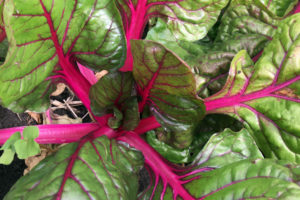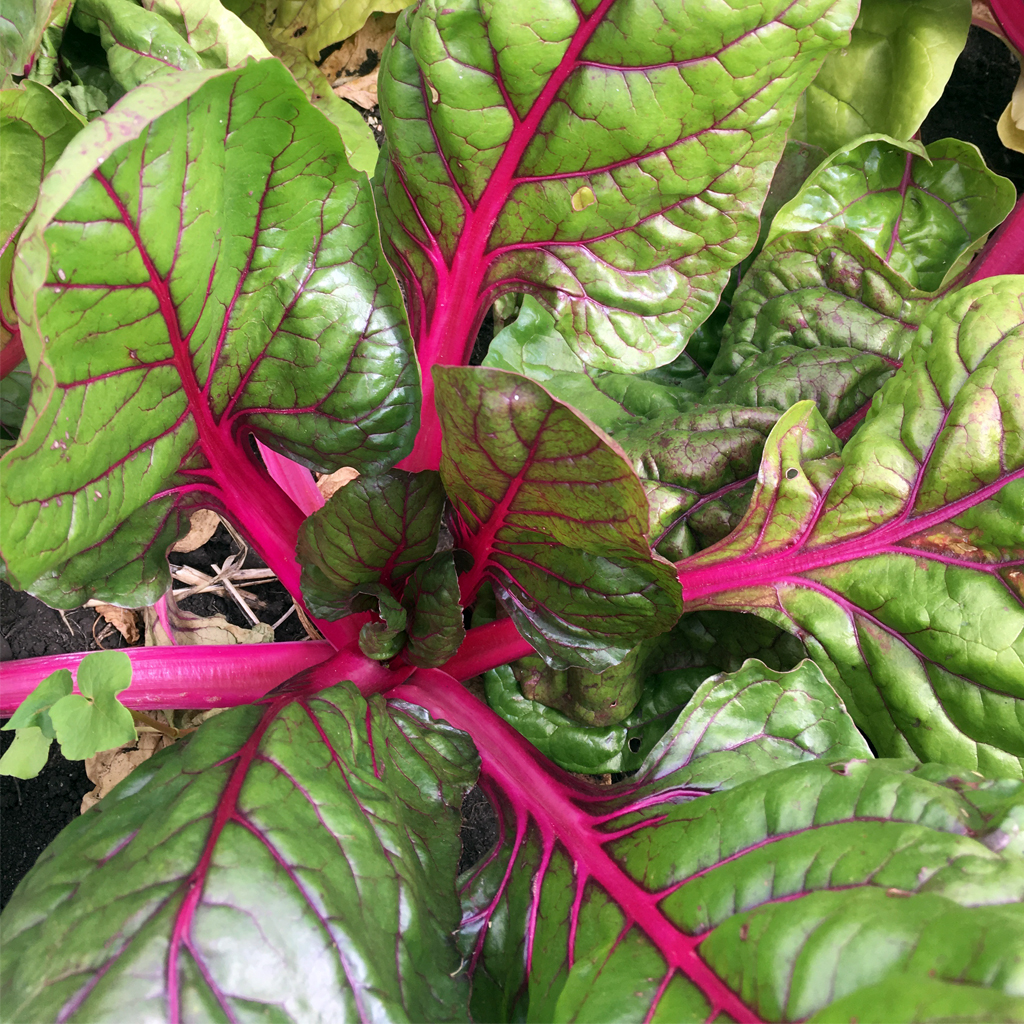
Answer: The best performers in our 2017 Swiss Chard variety trials.
Swiss Chard is a biennial seed crop, meaning it produces leaves and a substantial root system in the summer and fall, then is left in the field through the winter, the part of its life cycle known as vernalization. The vernalization period triggers the flowering and seed forming process the following spring. Unfortunately for farmers and gardeners, when seeded in the spring for leaf production, many Swiss Chard varieties bolt (go to seed) early due to cold accumulation during the cool spring nights — not a trait a Swiss Chard vegetable grower wants. Red varieties of Swiss Chard are particularly sensitive to the cold and apt to bolt when planted in the spring.
Bolt tolerance (a resistance to bolting) is one trait OSA is focusing on in our Swiss Chard breeding project, along with vibrant color, upright stature, large green leaves, and broad (but not too thick) petioles (stems). We’ve partnered with Nash’s Organic Produce over the past decade to develop an improved red variety which they expect to make commercially available in the near future.
Our team is currently selecting a vibrant pink variety that we’re calling ‘True Magenta’. This past March we planted a replicated variety trial of five pink and seven red varieties to see which ones were tolerant to bolting, and to assess the trueness and quality of our red and pink populations. Results are promising and we’re seeing some big differences in bolt tolerance between the varieties. (Hooray for variety trials!) All of the populations from our project showed little to no bolting.
We plan to continue selecting for uniformity of color and other traits, and will be sharing samples with farmers and seed companies to trial in the next year or two. To see our trials first hand, join us for our community field day on Monday, September 25th, at the OSA research farm in Chimacum, Washington.


